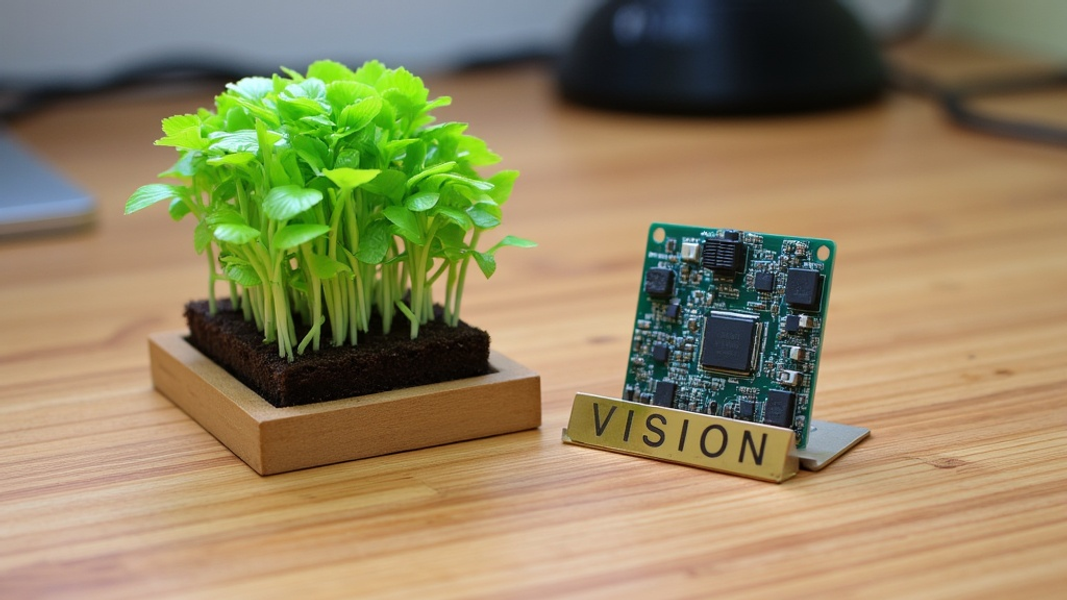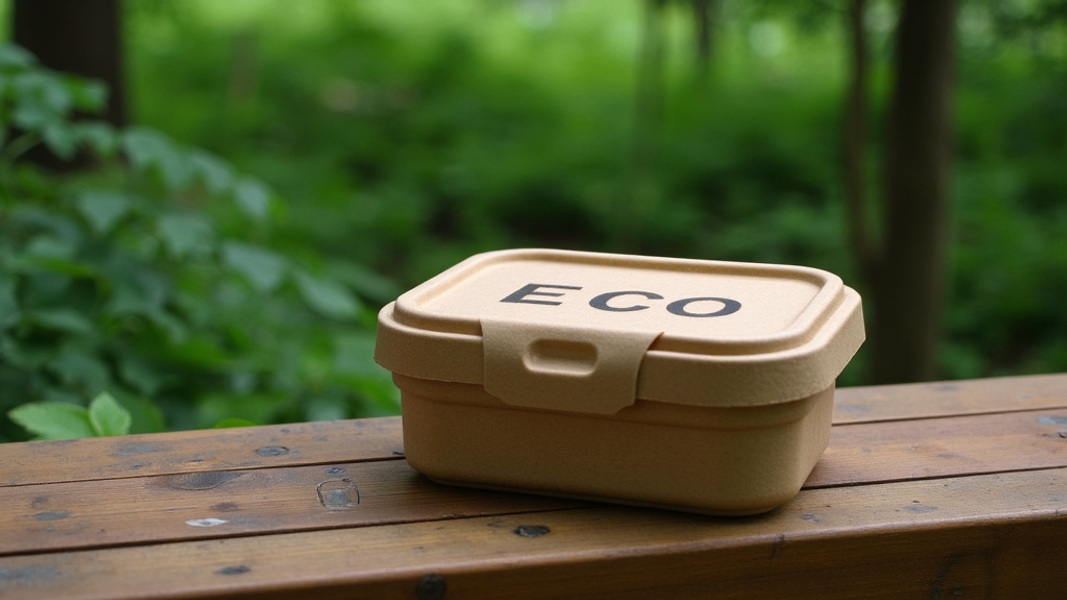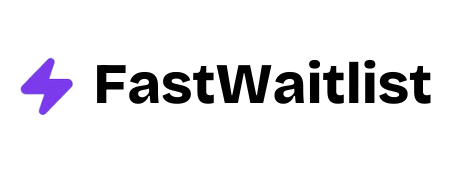
Have you ever dreamed of starting your own business but struggled to find the right idea? You're not alone. Millions of aspiring entrepreneurs face this challenge every day. But here's some good news: the world is full of opportunities for those willing to look. This guide will explore over 50 cutting-edge startup ideas across various industries, giving you the inspiration you need to kickstart your entrepreneurial journey.
The Current Startup Landscape
The business world is changing fast. New technologies, shifting consumer habits, and global events have created a unique environment for startups to thrive. Let's look at some of the key trends shaping the startup scene today.
Remote Work Revolution
The way we work has changed forever. More people than ever are working from home or embracing flexible schedules. This shift has opened up new opportunities for startups to create tools and services that cater to remote workers and distributed teams.
Companies like Zoom and Slack have seen massive growth by addressing the needs of remote teams. But there's still room for innovation in this space. Think about tools that could make virtual collaboration even easier or services that help remote workers stay productive and connected.
Sustainability Takes Center Stage
Consumers are becoming more aware of their impact on the planet. They're looking for products and services that align with their values and help them live more sustainably. This trend has created a huge market for eco-friendly startups.
From renewable energy solutions to zero-waste products, there's no shortage of opportunities in the sustainability sector. Companies like Beyond Meat have shown that it's possible to build successful businesses around sustainable alternatives to everyday products.
Personalization is Key
One-size-fits-all solutions are becoming a thing of the past. Today's consumers expect products and services tailored to their unique needs and preferences. This desire for personalization has created opportunities for startups across various industries.
Whether it's custom-made clothing, personalized meal plans, or AI-powered recommendations, there's a growing demand for solutions that feel tailor-made for each individual user.
Tech-Driven Startup Ideas
Technology continues to be a major driver of innovation in the startup world. Here are some exciting areas where tech-focused entrepreneurs can make their mark:
1. AI-Powered Personal Assistants
Artificial Intelligence (AI) has come a long way in recent years. While general-purpose AI assistants like Siri and Alexa are well-known, there's still room for more specialized AI helpers. Consider creating an AI assistant focused on a specific industry or task.
For example, you could develop an AI assistant for doctors that helps with diagnosis and treatment recommendations. Or create a virtual assistant for small business owners that handles scheduling, invoicing, and customer support.
2. IoT for Smart Agriculture
The Internet of Things (IoT) is transforming many industries, and agriculture is no exception. Smart farming solutions can help farmers increase yields, reduce waste, and make more informed decisions.
Imagine creating a network of sensors that monitor soil moisture, temperature, and nutrient levels in real-time. This data could be used to optimize irrigation and fertilization, leading to healthier crops and higher yields. You could also develop drones for crop monitoring or automated systems for livestock management.
3. Blockchain for Supply Chain Transparency
Blockchain technology offers a way to create transparent and tamper-proof records. This makes it ideal for improving supply chain management, especially in industries where traceability is crucial.
A startup in this space could develop a blockchain-based system that tracks products from source to consumer. This could be particularly valuable in the food industry, where consumers are increasingly interested in knowing where their food comes from and how it was produced.

4. Virtual Reality Training Platforms
Virtual Reality (VR) technology has advanced significantly, opening up new possibilities for immersive training experiences. A startup could create VR-based training programs for various industries, from healthcare to manufacturing.
For instance, you could develop a VR platform that allows medical students to practice complex surgeries in a risk-free environment. Or create virtual safety training programs for construction workers, allowing them to experience hazardous situations without real-world danger.
Health and Wellness Startups
The health and wellness industry continues to grow, driven by increasing health awareness and technological advancements. Here are some promising startup ideas in this sector:
5. Mental Health Apps
Mental health has become a major focus in recent years, and there's a growing demand for accessible mental health support. A startup could develop an app that offers on-demand therapy sessions, mood tracking, or guided meditation exercises.
The key to success in this space is creating a user-friendly interface and ensuring user privacy and data security. You could also explore using AI to provide personalized mental health tips and resources based on user data.
6. DNA-Based Fitness Plans
As genetic testing becomes more affordable and widespread, there's an opportunity to create personalized fitness and nutrition plans based on an individual's DNA. A startup in this space could partner with genetic testing companies to offer tailored workout routines and diet recommendations.
This approach could help people achieve better results by aligning their fitness efforts with their genetic predispositions. It's important to work with qualified geneticists and fitness experts to ensure the accuracy and effectiveness of these plans.
7. Wearable Health Monitors
While fitness trackers are common, there's still room for more specialized health monitoring devices. Consider developing wearables that track specific health markers, such as blood glucose levels for diabetics or air quality for people with respiratory issues.
The key to standing out in this crowded market is to focus on accuracy, ease of use, and meaningful data interpretation. Your device should not just collect data, but provide actionable insights that help users improve their health.
Sustainability-Focused Startups
With growing concerns about climate change and environmental degradation, sustainability-focused startups are more important than ever. Here are some ideas in this space:
8. Innovative Solar Technologies
While solar energy is not new, there's still room for innovation in this field. A startup could develop more efficient solar panels, explore new materials for solar cells, or create innovative ways to integrate solar technology into everyday objects.
For example, you could work on developing transparent solar panels that can be used as windows, allowing buildings to generate their own electricity without compromising on design.
9. Upcycling Marketplaces
Upcycling involves transforming waste materials or unwanted products into new, valuable items. A startup could create an online marketplace that connects creative upcyclers with consumers looking for unique, sustainable products.
This platform could feature everything from furniture made from reclaimed wood to fashion accessories created from recycled plastics. The key is to curate high-quality products and tell the story behind each item, appealing to consumers' desire for sustainability and uniqueness.
10. Eco-Friendly Packaging Solutions
As awareness of plastic pollution grows, there's a huge demand for sustainable packaging alternatives. A startup in this space could develop biodegradable packaging materials or create innovative reusable packaging systems.
For instance, you could work on edible packaging for food products or develop a circular system where packaging is returned, cleaned, and reused. The challenge is to create solutions that are both environmentally friendly and practical for businesses to adopt.

E-commerce and Retail Innovation
The retail landscape is constantly evolving, driven by changing consumer behaviors and technological advancements. Here are some startup ideas that could shape the future of shopping:
11. AR-Powered Virtual Try-Ons
Augmented Reality (AR) technology can solve one of the biggest challenges of online shopping: the inability to try products before buying. A startup could develop AR tools that allow customers to virtually try on clothes, makeup, or even furniture in their own homes.
This technology could significantly reduce return rates for online retailers and increase customer satisfaction. The key is to create a user-friendly interface and ensure that the virtual try-on experience is as realistic as possible.
12. Hyper-Local Delivery Networks
While major companies dominate the delivery market, there's still room for innovation in hyper-local delivery services. A startup could create a platform that connects local businesses with nearby customers for ultra-fast delivery.
This could be particularly valuable for perishable goods like fresh produce or prepared meals. The challenge is to build a reliable network of delivery partners and create an efficient routing system to ensure quick deliveries.
13. Customizable Subscription Boxes
Subscription boxes have become popular, but there's still room for more personalized offerings. A startup could create a highly customizable subscription service that allows customers to tailor every aspect of their box.
This could work for various product categories, from gourmet food to craft supplies. The key is to offer a wide range of options and use data analytics to continually refine recommendations based on customer preferences and feedback.
Education and Skill Development
The education sector is ripe for disruption, with new technologies opening up possibilities for more personalized and accessible learning. Here are some startup ideas in this space:
14. Microlearning Platforms
In our fast-paced world, many people struggle to find time for traditional courses. A startup could develop a platform that breaks down complex skills into bite-sized lessons that can be completed in just a few minutes each day.
This could work for various subjects, from language learning to professional skills. The key is to create engaging, high-quality content and use spaced repetition and other proven learning techniques to ensure knowledge retention.
15. VR Language Immersion
Learning a new language is most effective when you're immersed in it. A startup could create virtual reality environments that simulate real-life situations in different countries, allowing language learners to practice their skills in a realistic context.
This could include virtual conversations with AI-powered characters, interactive scenarios like ordering food or asking for directions, and cultural experiences that provide context for language use.
16. Peer-to-Peer Skill Sharing
Many people have valuable skills they could teach others, but lack the platform to do so. A startup could create a marketplace that connects skilled individuals with those wanting to learn, facilitating one-on-one or small group lessons.
This could cover a wide range of skills, from traditional crafts to modern tech skills. The platform would need to include features for scheduling, video calls, and secure payments to make the process smooth for both teachers and learners.
Frequently Asked Questions
How do I know if my startup idea is good?
A good startup idea solves a real problem for a specific group of people. Start by identifying a problem you're passionate about solving. Then, talk to potential customers to validate that the problem is widespread and that people would be willing to pay for a solution. It's also important to research the market to ensure your idea is unique or significantly better than existing solutions.
Do I need a lot of money to start a startup?
Not necessarily. Many successful startups have begun with minimal funding. The amount of money you need depends on your specific idea and industry. Some businesses, like software startups, can start with just a computer and an internet connection. Others, like manufacturing businesses, may require more upfront investment. Consider starting small and scaling up as you validate your idea and gain customers.
How important is the founding team for a startup's success?
The founding team is crucial for a startup's success. Investors often say they invest in people, not just ideas. A strong founding team should have complementary skills and a shared vision. It's important to have a mix of technical, business, and industry-specific expertise. If you're starting alone, consider finding co-founders or advisors who can fill in your skill gaps.
How can I protect my startup idea?
While it's natural to want to protect your idea, most investors and experienced entrepreneurs will tell you that execution is more important than the idea itself. That said, there are steps you can take to protect your intellectual property. These include filing for patents for unique inventions, trademarking your brand name and logo, and using non-disclosure agreements when discussing your idea with potential partners or employees. However, don't let fear of idea theft prevent you from getting valuable feedback on your concept.
What if my startup idea fails?
Failure is a common part of the entrepreneurial journey. Many successful entrepreneurs have had failed startups before finding success. If your startup doesn't work out, treat it as a learning experience. Analyze what went wrong, what you could have done differently, and how you can apply these lessons to your next venture. Remember, each failure brings you closer to success by teaching you valuable lessons about business, your industry, and yourself.
Starting a business is an exciting journey filled with challenges and opportunities. While these ideas can serve as inspiration, the most successful startups often come from entrepreneurs who identify unique problems in their own lives or industries. Keep your eyes open for problems that need solving, stay curious about new technologies and trends, and don't be afraid to think outside the box. With persistence, creativity, and a willingness to learn and adapt, you can turn your startup dream into reality.
